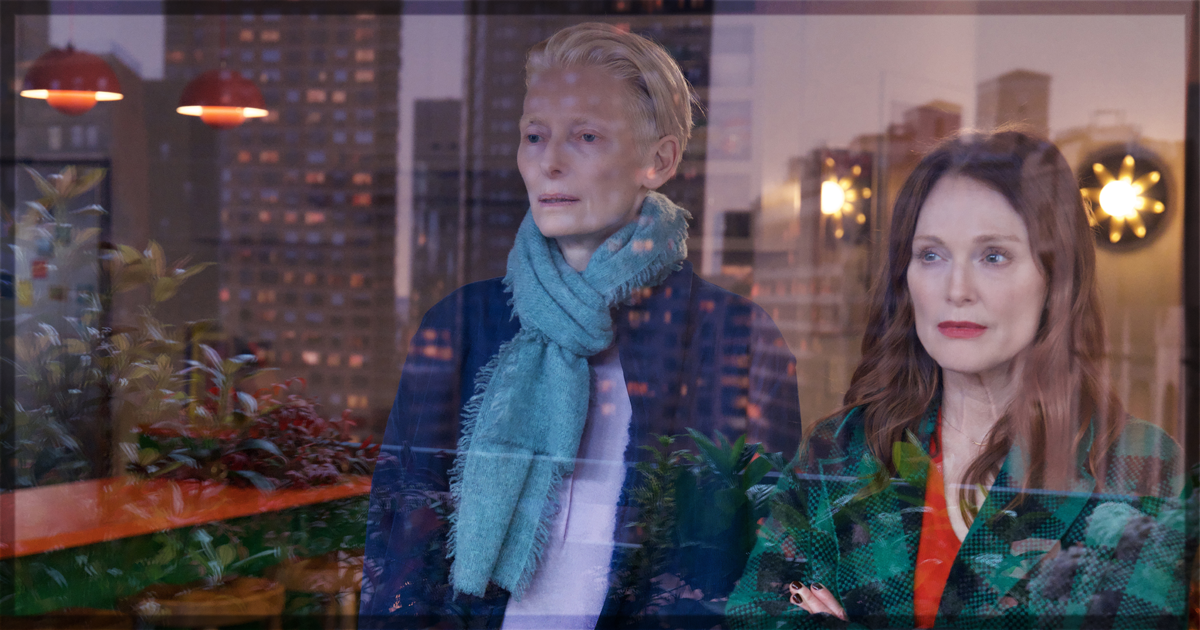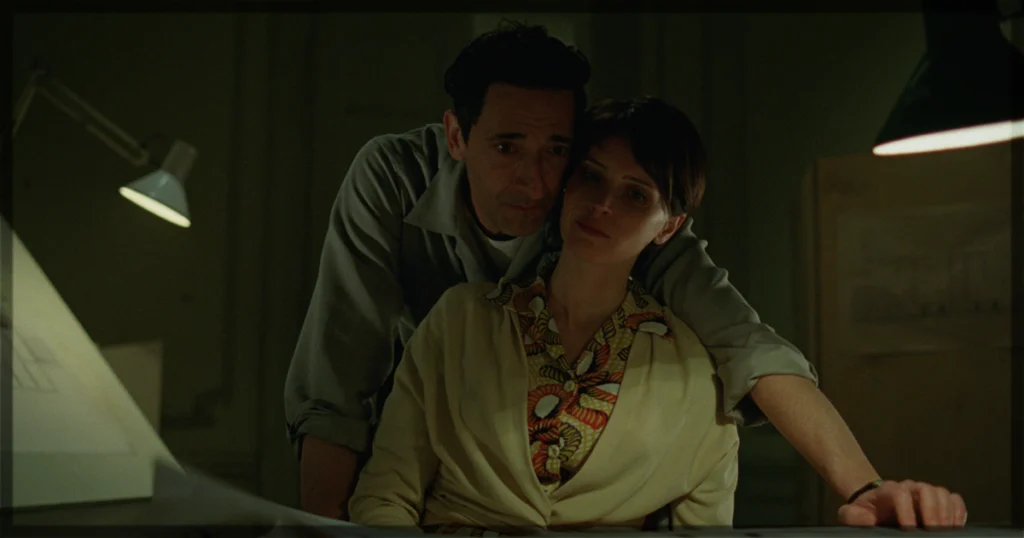It’s depressing to realize someone is coasting on their reputation instead of using their talent, and in fact making so little use of their talent that their reputation becomes suspect. This is the sorry state of affairs after seeing The Room Next Door, written and directed by Pedro Almodóvar, that is neither believable, realistic or gay. It’s as if he set a bet with himself not to use any of the scenarios – wild sexuality, ludicrous yet emotionally realistic personal lives, and a blazing contempt for organized authority of any kind – which allowed him to move from beloved Spanish troublemaker to beloved global cineaste. It’s such a disappointment.
Ingrid (Julianne Moore) is an American author who has recently returned to the US, and whose new book is about her fear of death. On the signing line at a bookshop event she learns that a friend she’s lost touch with, Martha (Tilda Swinton) is gravely ill with cervical cancer. Ingrid, who is researching her next book on the Bloomsbury Group, meaning her time is hers to spend as she pleases, begins hanging out with Martha, who has the movie version of cancer that only renders her thinner and more beautiful. The base needs of her body don’t come into it at all and money certainly isn’t an issue, not when she lives in an apartment on Fifth Avenue in New York City. Martha is furious at her disease and equally furious at the unshown indignities of her treatments.
Over many tasteful mugs of tasteful tea Martha recites her life story to Ingrid, which mostly involves irritation about her adult daughter and fond reminisces of her career as a ‘war journalist.’ The flashback scenes around her daughter’s conception provide a bit part to Emma Corrin. During all the complaints about the daughter Martha never bothers to mention who actually brought her up while she was busy partying in New York City or hanging out in the wars. The flashback scene of her journalistic career shows her interviewing two Spanish monks who have chosen not to be evacuated from Baghdad, and her interview technique is to tell them repeatedly how very/really/extremely dangerous it is. Why she never got a Pulitzer is implied. At one point a couple in a truck drive past a house ablaze in field next to the road, and the wife announces to the husband, “That house is on fire.” It’s so over the top you can’t even be sarcastic about it. But because Ingrid is the only person who is still showing up for Martha, Martha asks Ingrid to be in the room next door when she takes a euthanasia pill. They’re available on the dark web, you know. They discuss how awful to think how fragile the veneer of our society is when stuff like that is just out there. And despite Ingrid having such a fear of death that she’s written a book about it, she accepts.
The movie is adapted from a book by Sigrid Nunez, who has a reputation as a writer of uncommon sensitivity, so it’s a surprise that the script is so awful. Was it translated from the Spanish by AI? Art which shows death on the easiest possible setting scrapes out the reality of terminal illness and the awful suffering which precedes it, making it bearable to watch but also laughably unrealistic. John Turturro has a small part as an ex of both women who is so committed to fighting climate change he insulted his son and daughter-in-law for having a third child. Hearts and minds, eh. It’s implied Ingrid is standing by Martha because she intends to use her experiences for a book, which is not much motivation when the option of them being in love at last was strongly implied from Mr. Almodóvar’s previous works. And when Martha’s daughter does show up, she is played by an actress who should not be spoiled, mostly because speaking about it is beneath all of us. That casting choice was a jaw dropping mistake, so bad it’s not even funny, and one which the Venice Film Festival audience reacted to in unhappy stunned silence.
On the plus side, the film looks great (it was filmed on sets in Spain), the set design makes terrific use of color blocks, and the repeated quoting of “The Dead“ by James Joyce elevates any work of art. But if you are looking for meaningful performances from two of the finest actresses of our age, you won’t find that here. If you are looking for an auteur at the top of his game, go elsewhere. If you are looking for a campy good time, you’ll be disappointed. The Room Next Door is only an empty space full of hot air.


